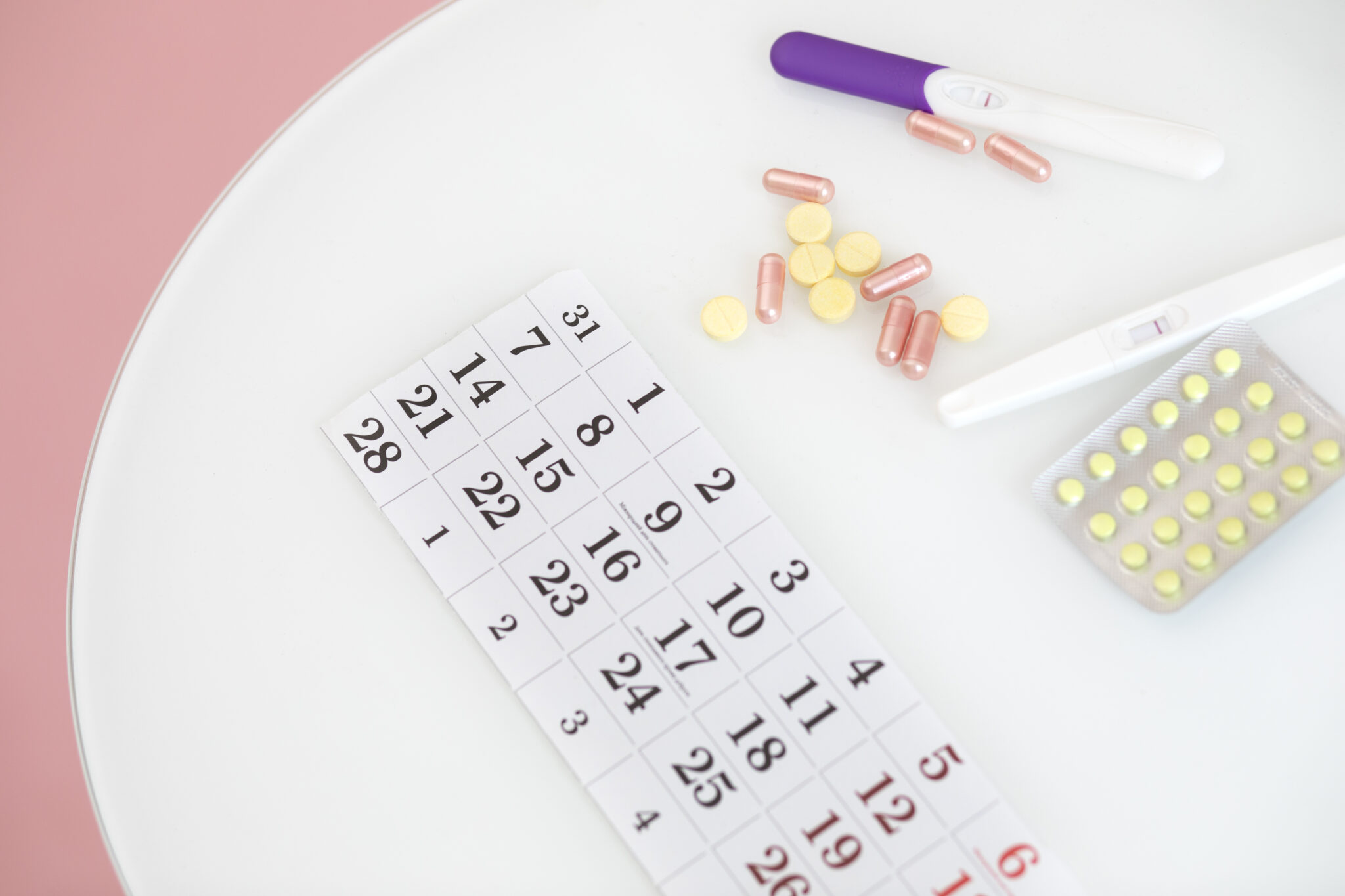Hormones are responsible for nearly everything that goes on in your body. They are the courier service that delivers messages to every organ and system, letting it know how to function and what to do and when. When you have a better understanding of these hormones, what they are, and how they work, you can come into a better understanding of your body and health as a whole! With that goal in mind, let’s keep learning about the many different hormones in the human body, focusing on progesterone.
What is Progesterone?
Progesterone, like testosterone and estrogen, is a sex hormone. This means that its primary functions have to do with the reproductive system and sexual health.
Similar to estrogen, progesterone is considered a largely “female” hormone, because its most vital functions are in the menstrual cycle and pregnancy. However, both men and women have some amount of progesterone in their system, just like estrogen and testosterone! In males, the levels of progesterone are simply much lower than in females.
What Does Progesterone Do?
Progesterone plays a big role in the formation and function of the endometrium, or the lining of the uterus. This lining is what builds up throughout the month and then sheds during a period if a woman does not become pregnant, and it becomes the placenta if a fertilized egg implants and the woman becomes pregnant. Rising progesterone levels cause the endometrium to thicken in preparation for fertilization and implantation, and if this doesn’t occur, progesterone levels drop off, causing the shedding of the endometrium and the monthly period.
If a fertilized egg does implant, progesterone also plays a role in the early stages of pregnancy. It helps to encourage the endometrium to form the placenta, stimulating blood vessels so that it can nourish the growing fetus. Progesterone levels stay high throughout pregnancy, preventing any more eggs from being released, and it also is one of the hormones that stimulates lactation after the baby is born.
In men, progesterone plays a role in the regulation of testosterone levels and the formation of sperm. It also has an impact on mood, sleep, libido, and bone density!
Where is Progesterone Made?
Most sex hormones are made in the primary sex glands– the ovaries for women and the testes for men. This is partially true of progesterone, however, it’s a bit more complicated.
In males, progesterone is just produced in the testes. In females, it’s actually produced in a temporary gland called the corpus luteum. Here’s what happens. Inside the ovary, a structure called a follicle releases the egg into the fallopian tube, where it is either fertilized or dissolves. After the follicle releases the egg, it forms the corpus luteum. This is the gland that produces progesterone to help the uterine lining thicken up in preparation for a potential pregnancy. When the egg isn’t fertilized and breaks down, the corpus luteum breaks down too, and progesterone levels fall, causing the period to happen. Basically, each time you go through a menstrual cycle, your body is creating, using, and breaking down a new gland!
If a woman does become pregnant, the corpus luteum doesn’t dissolve. Instead, it keeps pumping out progesterone to create the placenta. Eventually, once the placenta is large and developed enough, it starts to create progesterone on its own, becoming the major producer of this hormone in the body throughout pregnancy to keep the fetus nourished and prevent both ovulation and premature uterine contractions that might cause early labor.
What Happens if You Have Low Progesterone?
Low progesterone is often associated with fertility problems and trouble conceiving or carrying a pregnancy to term. If you aren’t pregnant but you have low progesterone, you might have irregular periods, headaches, mood swings, mood difficulties like anxiety or depression, trouble sleeping, or hot flashes. If you are pregnant and you have low progesterone, you can be at risk for ectopic pregnancy, preterm labor, or miscarriage.
Progesterone levels, like estrogen levels, also drop off as you age and begin to enter menopause, and this decrease in progesterone is associated with the common symptoms of menopause, like night sweats, hot flashes, vaginal dryness, and mood swings.
What Happens if You Have High Progesterone?
High progesterone levels aren’t often seen outside of pregnancy, but they are to blame for some of the common unpleasant symptoms of pregnancy, including nausea, breast tenderness, and fatigue.
If you do have high progesterone levels when you’re not pregnant, you may notice these symptoms, as well as anxiety or depression, low sex drive, or bloating and weight gain. These elevated levels might be due to hormonal birth control that you’re taking, or it could be a sign of an ovarian cyst or another abnormality with your reproductive system. If your blood work shows high progesterone levels without any other explanation, your medical provider should discuss these possibilities with you.
What to Do About Progesterone Imbalances?
The most common reason people have trouble with progesterone imbalances is menopause. The dropping levels of this hormone can make life extremely difficult for some women! If this is true for you and you’re interested in feeling better, hormone replacement therapy might be the right path for you. Make sure you contact the team at Renewed Vitality to learn more!





